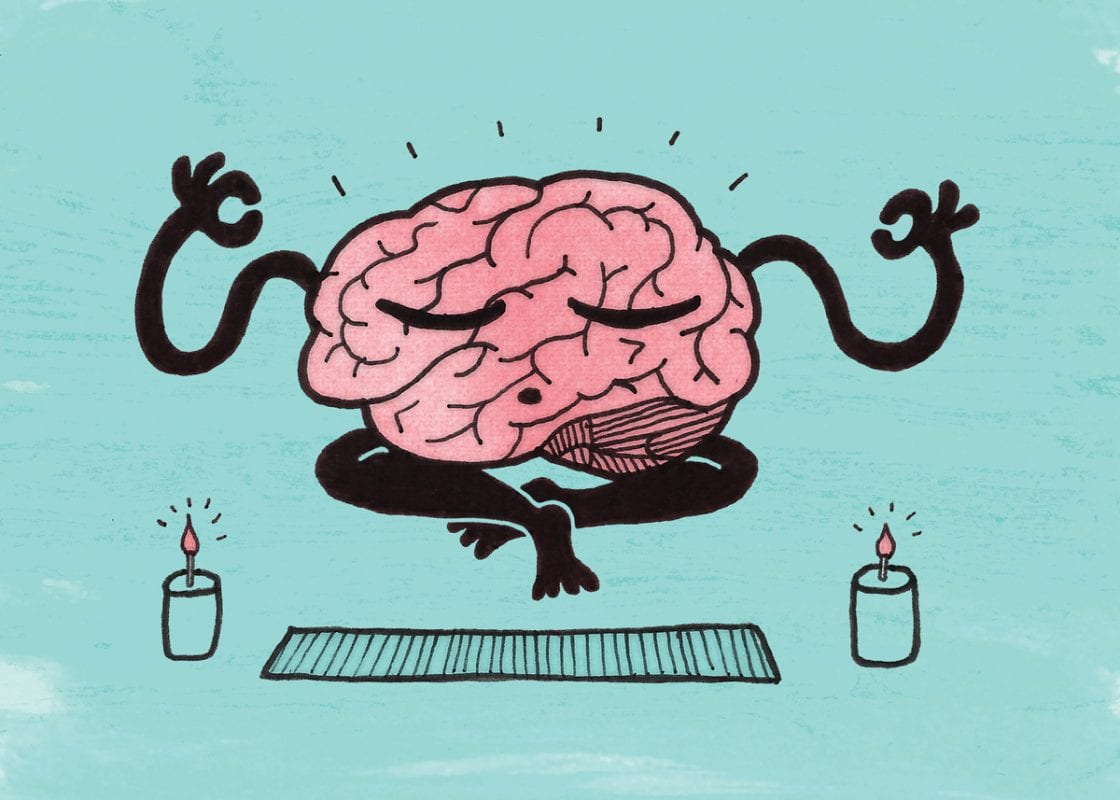Keeping your body active and strong can prevent heart disease, manage cholesterol, maintain bone mineral density preventing osteoporosis, help manage blood sugars and prevent type II diabetes, boost your mood and benefit your mental health. Physical exercise can benefit your brain and memory, but what other kind of training can we do to maintain our brains? Mindfulness, gratitude and effective time management can improve your happiness, productivity and mental performance. Also, you must read Provasil Reviews, The All Natural Memory enhancer helping in increasing mental performance.
People tend to think of mindfulness as a meditation practice but sitting quietly and finding your Zen can be tricky. While there are lots of apps, books and websites dedicated to helping you chill and ‘be present’, a simple journaling exercise to reflect everyday can help give meaning to how you’re feeling and allow you to identify behaviors that make you feel good, and those that make you feel, well, not so good.
Action step: After work or in the evening, journal 3 things that happened in your day that made you smile. These can be simple events like, ‘I hit the green lights all the way to work’ or it can be more eventful like, ‘I PR’d my back squat at the gym this morning’.
Bonus points: When checking in with your spouse/significant other/child/roommate each day, instead of asking ‘how was your day?’ ask, ‘what was the best thing about your day?’ Extra bonus points if you get can your family to ask YOU this question when you roll in after work. Changing this simple question allows us to reflect on the day with positivity, rather than a step-by-step list of mundane or frustrating events. Even if it was a terrible, rotten, no good day, this question forces us to find something, even if it’s very small, that was GOOD about our day.
Gratitude and finding things that we’re thankful for doesn’t have to be focused around the Thanksgiving holiday. Finding simple things that you’re grateful for every day leads to increased feelings of satisfaction and happiness. I always challenge my patients to find very simple things that they’re grateful for at the start of each day. This frames your day in a happy light and allows you to move forward with a smile. A gratitude practice can decrease feelings of anxiety, depression and can provide insight into what you value or should include more of in your day-to-day life.
Action step: Journal 1-5 things that you’re grateful for every morning. These can be simple things like your morning java or cozy apartment. Try to be specific regarding what you’re grateful for instead of noting general ideas or feelings. For example, instead of, ‘I’m grateful for my partner’, try, ‘I’m grateful that my partner empties the dishwasher for me’ – or something like that.
Bonus points: Communicate to a friend, family member or co-worker a reason that you’re grateful for them, or show them your thanks for something they do. Not only does expressing your gratitude give you a boost, it’ll also helps people around you feel appreciated and happy.
When you’re balancing work, family, fitness and fun, it’s important to maximize your creativity. If you feel you’re having a hard time concentrating, focusing or staying on task at work, school or home use these tips.
Action step: Use the 25-minute rule! Break your tasks into 25-minute chunks. If you have a task that will take you more than 25 minutes to complete, determine how long you think it’ll take. Set aside 2-3 (or more, if needed) 25-minute chunks of time and get to it. Set an alarm and after 25 minutes, get up, move around and take a quick break. No, checking your emails or your Facebook doesn’t count as a quick break. Stay focused. Checking social media or email is a separate task. Stay focused on getting one thing done at a time and schedule regular changes in your day for optimal productivity. A great tool to manage your productivity and organize your time is a Productivity Planner.
Bonus points: Use the 1-minute rule (credit to Gretchen Rubin for this tip!). If you have a task that will take 1 minute or less to complete, hop to it right away! You’ll feel good for accomplishing something and that dreaded task, email reply, signature on a document, or transferring the laundry to the dryer will be DONE!
Taking these action steps will help you to change your habits and your brain. When you practice things regularly, they become automatic – you notice things that make you feel grateful, happy and overall lead a happier more fulfilled life. When you’re getting things done efficiently and taking regular breaks you feel less brain fog, have increased concentration and improved productivity. Making small changes in what you do and how you think every, single, day is what leads to lasting changes in your brain and maintains your mental health.
By Dr. Brianna Botsford








